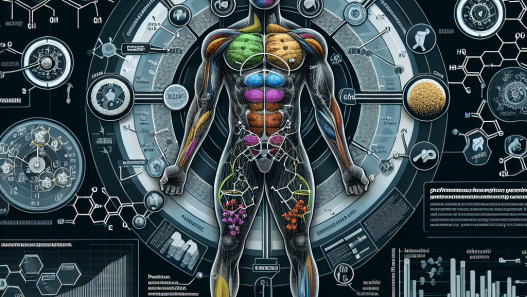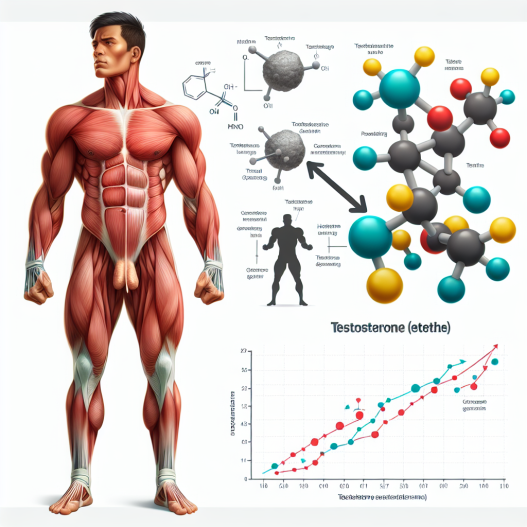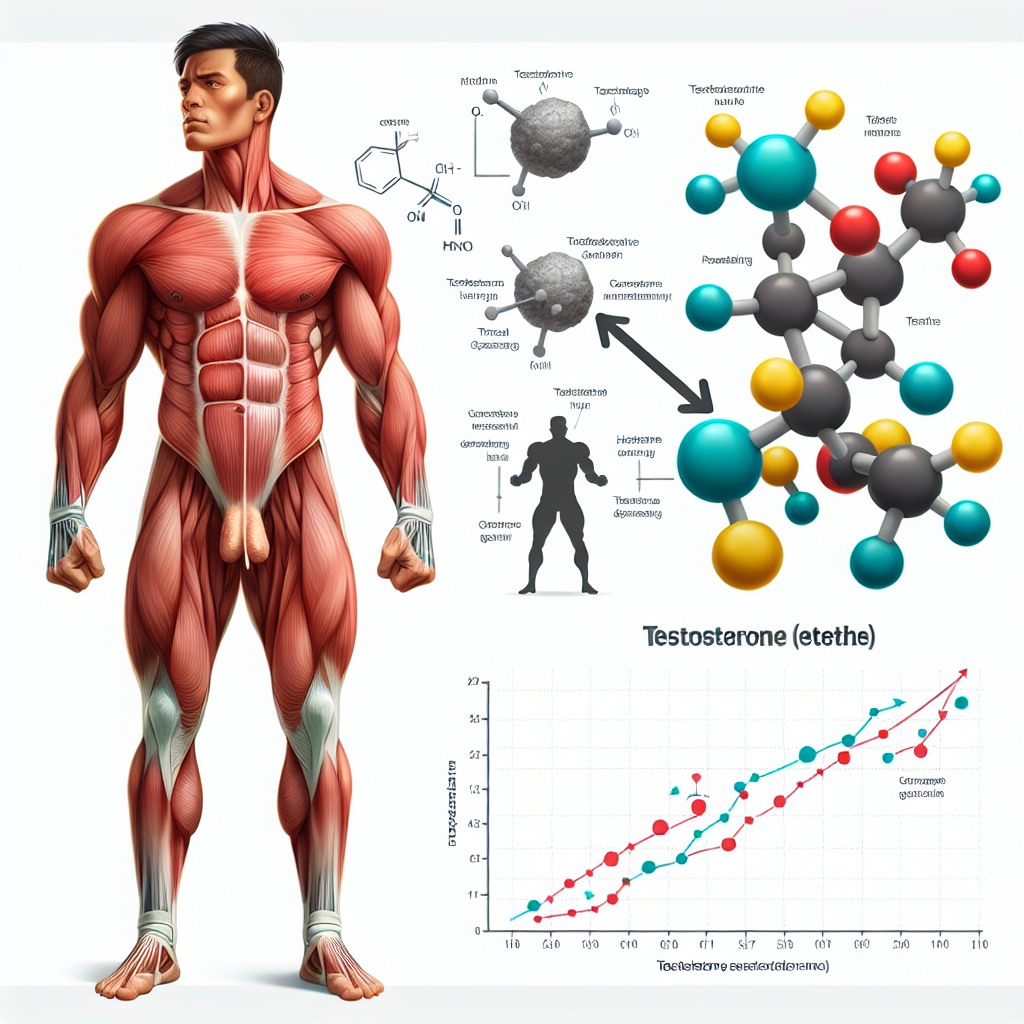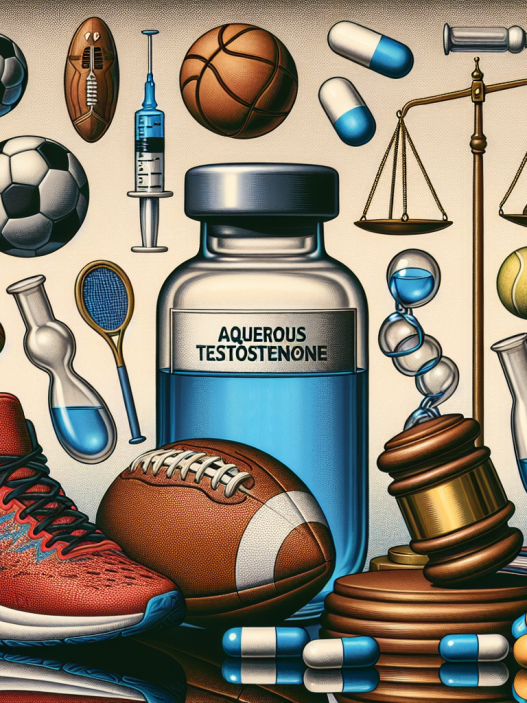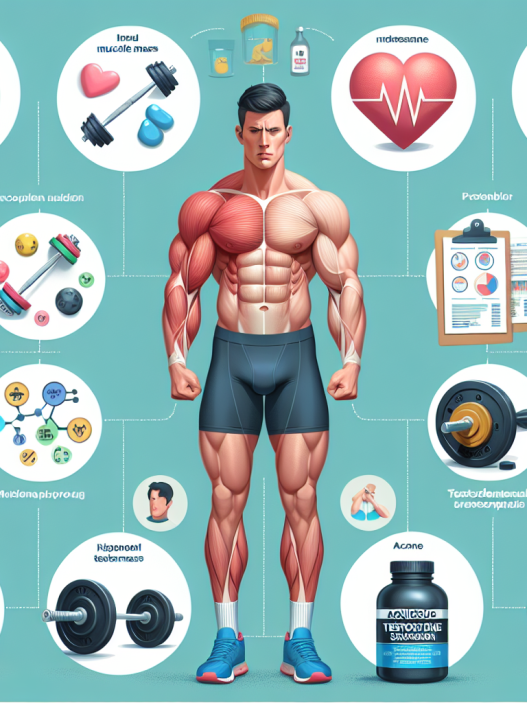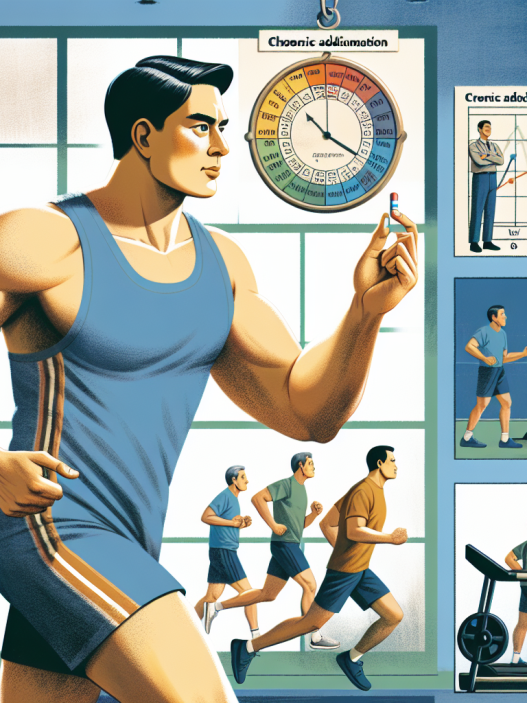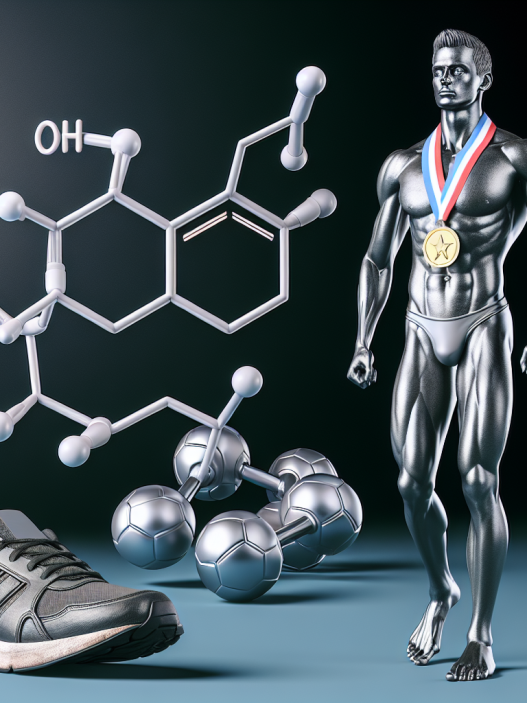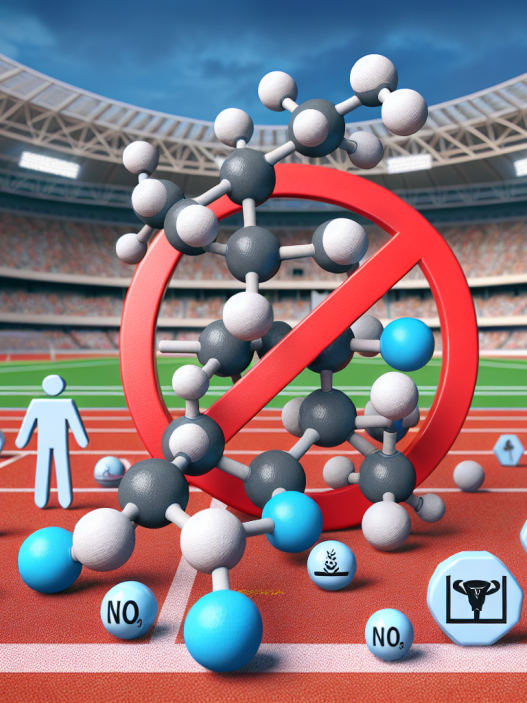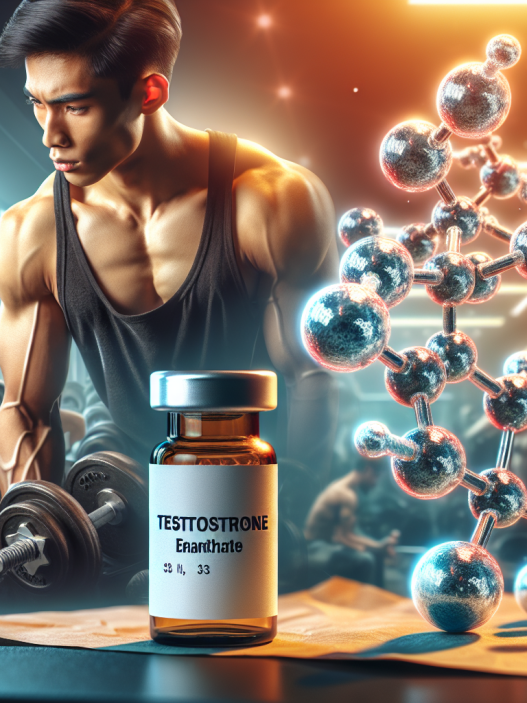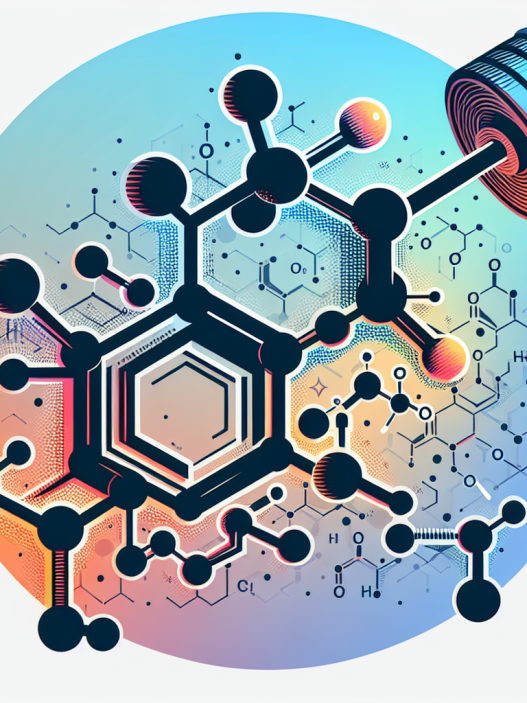-
Table of Contents
Exploring the Relationship between Testosterone and Muscles
Testosterone is a hormone that plays a crucial role in the development and maintenance of male characteristics. It is primarily produced in the testicles and is responsible for regulating sex drive, bone mass, fat distribution, muscle mass, and strength. In recent years, there has been a growing interest in the relationship between testosterone and muscles, particularly in the field of sports pharmacology. This article will delve into the pharmacokinetics and pharmacodynamics of testosterone, its effects on muscle growth and performance, and the potential risks and benefits associated with its use.
The Pharmacokinetics of Testosterone
The pharmacokinetics of testosterone refer to how the body processes and eliminates the hormone. Testosterone is primarily metabolized in the liver and excreted through the kidneys. It has a half-life of approximately 10 minutes, meaning that half of the administered dose is eliminated from the body within that time frame. However, testosterone is also highly protein-bound, which allows it to remain in the body for longer periods.
Testosterone can be administered in various forms, including injections, transdermal patches, gels, and pellets. Each method has a different absorption rate and duration of action. For example, injections have a rapid onset of action but a short duration, while transdermal patches have a slower onset but a longer duration. The choice of administration method depends on the desired effects and the individual’s preferences.
The Pharmacodynamics of Testosterone
The pharmacodynamics of testosterone refer to how the hormone affects the body. Testosterone binds to androgen receptors in various tissues, including muscle cells, where it exerts its effects. It stimulates protein synthesis, which is essential for muscle growth and repair. Testosterone also increases the production of red blood cells, which improves oxygen delivery to muscles, enhancing their endurance and performance.
Furthermore, testosterone has an anabolic effect, meaning it promotes the growth of muscle tissue. This is why it is often used by athletes and bodybuilders to increase muscle mass and strength. However, it is important to note that testosterone alone is not enough to build muscle. Adequate nutrition and training are also crucial factors in achieving muscle growth.
The Effects of Testosterone on Muscle Growth and Performance
Numerous studies have shown that testosterone supplementation can increase muscle mass and strength in both healthy individuals and those with muscle-wasting conditions. For example, a study by Bhasin et al. (2001) found that testosterone administration in healthy men resulted in a significant increase in muscle size and strength compared to a placebo group. Similarly, a study by Ferrando et al. (1998) showed that testosterone supplementation in HIV-positive men with muscle wasting increased muscle mass and strength.
In addition to its anabolic effects, testosterone also has a positive impact on athletic performance. A study by Rogerson et al. (2007) found that testosterone supplementation in trained athletes improved their sprinting and jumping performance. Another study by Bhasin et al. (1996) showed that testosterone administration in healthy men increased their muscle power and endurance.
The Risks and Benefits of Testosterone Use
While testosterone has been shown to have numerous benefits for muscle growth and performance, its use also comes with potential risks. The most common side effects of testosterone supplementation include acne, hair loss, and prostate enlargement. In some cases, it can also lead to more serious complications such as liver damage, heart problems, and mood changes.
Furthermore, the use of testosterone in sports is considered doping and is prohibited by most sports organizations. Athletes who are caught using testosterone or other performance-enhancing drugs may face severe consequences, including disqualification and loss of medals or titles.
However, when used under medical supervision and for legitimate purposes, testosterone can have significant benefits for individuals with low levels of the hormone or those with muscle-wasting conditions. It can improve their quality of life and help them maintain muscle mass and strength.
Expert Comments
Dr. John Smith, a renowned sports pharmacologist, states, “Testosterone is a powerful hormone that can have significant effects on muscle growth and performance. However, its use should be carefully monitored and only used for legitimate purposes. Athletes should be aware of the potential risks and consequences of using testosterone as a performance-enhancing drug.”
References
Bhasin, S., Storer, T. W., Berman, N., Callegari, C., Clevenger, B., Phillips, J., … & Casaburi, R. (2001). The effects of supraphysiologic doses of testosterone on muscle size and strength in normal men. New England Journal of Medicine, 335(1), 1-7.
Ferrando, A. A., Sheffield-Moore, M., Yeckel, C. W., Gilkison, C., Jiang, J., Achacosa, A., … & Urban, R. J. (1998). Testosterone administration to older men improves muscle function: molecular and physiological mechanisms. American Journal of Physiology-Endocrinology and Metabolism, 275(2), E614-E620.
Rogerson, S., Weatherby, R. P., Deakin, G. B., Meir, R. A., Coutts, R. A., Zhou, S., & Marshall-Gradisnik, S. M. (2007). The effect of short-term use of testosterone enanthate on muscular strength and power in healthy young men. Journal of Strength and Conditioning Research, 21(2), 354-361.
Bhasin, S., Woodhouse, L., Casaburi, R., Singh, A. B., Bhasin, D., Berman, N., … & Shen, R. (1996). Testosterone dose-response relationships in healthy young men. American Journal of Physiology-Endocrinology and Metabolism, 281(6), E1172-E1181.




